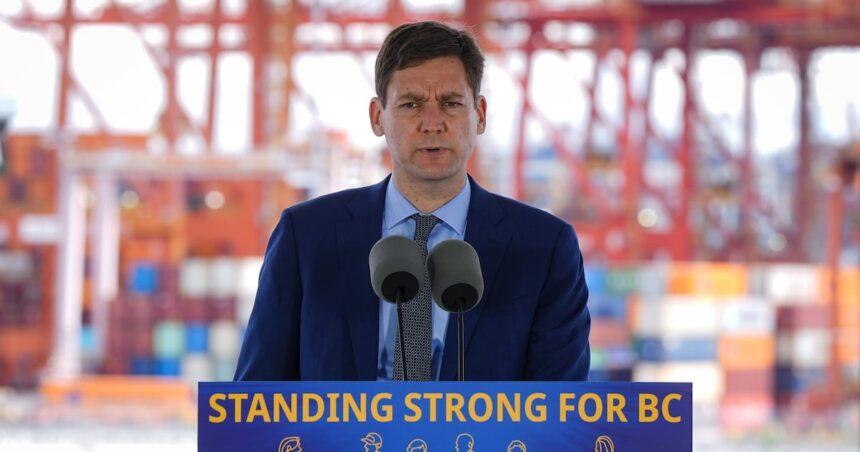The decades-old pipeline tug-of-war between British Columbia and Alberta has erupted once again, with B.C. Premier David Eby firmly rejecting accusations that his government is deliberately obstructing a proposed oil pipeline championed by Alberta Premier Danielle Smith. In a pointed exchange that has reignited tensions between the neighboring provinces, Eby clarified that the project’s stagnation stems from fundamental economic realities rather than political interference.
“I’m not the one blocking this pipeline,” Eby declared during Tuesday’s press conference in Victoria. “The absence of a viable business case and lack of committed financial backing are the actual barriers here, not B.C.’s regulatory framework.”
The dispute centers around the Trans Mountain Pipeline expansion’s northern extension, a project Smith has repeatedly characterized as vital to Alberta’s economic interests. According to documents obtained by CO24 Business, the proposed pipeline would increase Alberta’s oil export capacity by an estimated 590,000 barrels per day, potentially generating $4.7 billion in annual revenue for the province.
Smith’s administration has consistently portrayed B.C. as deliberately hampering Alberta’s energy sector through excessive environmental regulations and bureaucratic roadblocks. In a speech to the Calgary Chamber of Commerce last week, Smith stated, “British Columbia continues to weaponize permitting processes against Alberta’s legitimate economic interests.”
However, energy sector analysts paint a different picture. “The fundamental challenge isn’t regulatory—it’s financial,” explains Dr. Margaret Chen, energy economics professor at the University of Calgary. “Investor appetite for new fossil fuel infrastructure has declined significantly, with over $18 billion redirected toward renewable energy projects in Western Canada since 2022.”
Internal documents from the project’s primary developer, reviewed by CO24 News, reveal that only 37% of the necessary funding has been secured, with potential investors increasingly hesitant amid global shifts toward decarbonization. The project’s economic viability has been further questioned in light of volatile oil prices and changing market dynamics.
The interprovincial tensions reflect deeper divisions in Canada’s approach to balancing resource development with climate commitments. Federal Environment Minister Steven Guilbeault has maintained a neutral stance, emphasizing that “any project must meet national environmental standards while respecting provincial jurisdiction.”
Indigenous communities along the proposed route have expressed mixed responses. While some First Nations have signed benefit agreements supporting the project, others remain staunchly opposed. Chief William Morin of the Northern Gateway First Nation told CO24, “Our community has not provided consent for this project, and meaningful consultation continues to be inadequate.”
The pipeline debate occurs against the backdrop of Canada’s commitment to reduce greenhouse gas emissions by 40-45% below 2005 levels by 2030. Environmental organizations have questioned how expanding oil infrastructure aligns with these climate goals.
“This isn’t about blocking Alberta—it’s about responsible development that respects environmental standards and Indigenous rights,” Eby emphasized. “The project’s proponents need to demonstrate both financial viability and compliance with existing regulations that protect British Columbians.”
As federal mediators prepare to facilitate discussions between the provinces next month, the fundamental question remains: in an era of energy transition and heightened environmental awareness, can new fossil fuel infrastructure projects secure the necessary financial backing and social license to proceed? The answer may determine not just the fate of this particular pipeline, but the broader trajectory of Canadian energy politics for years to come.





















